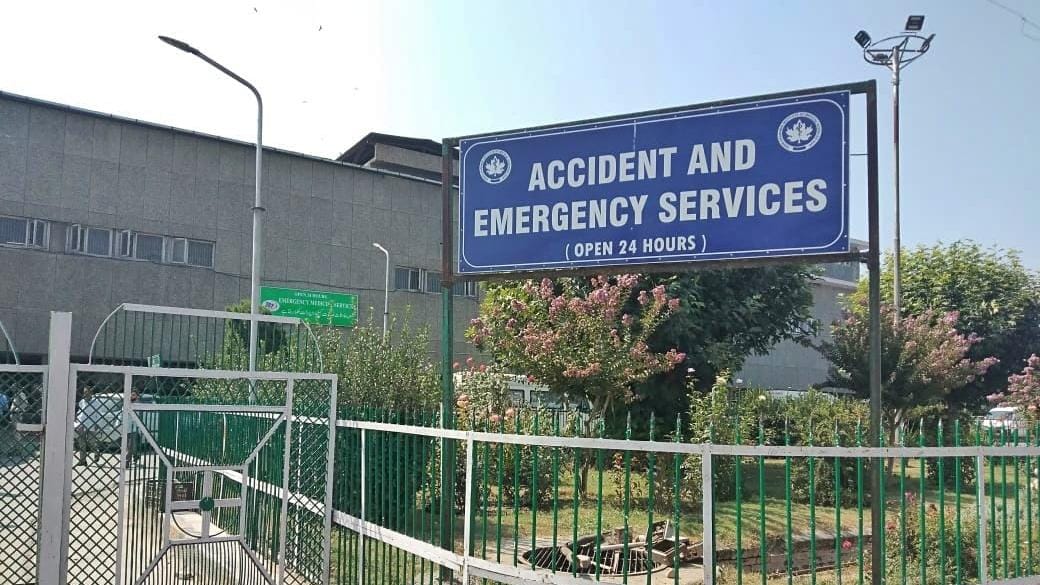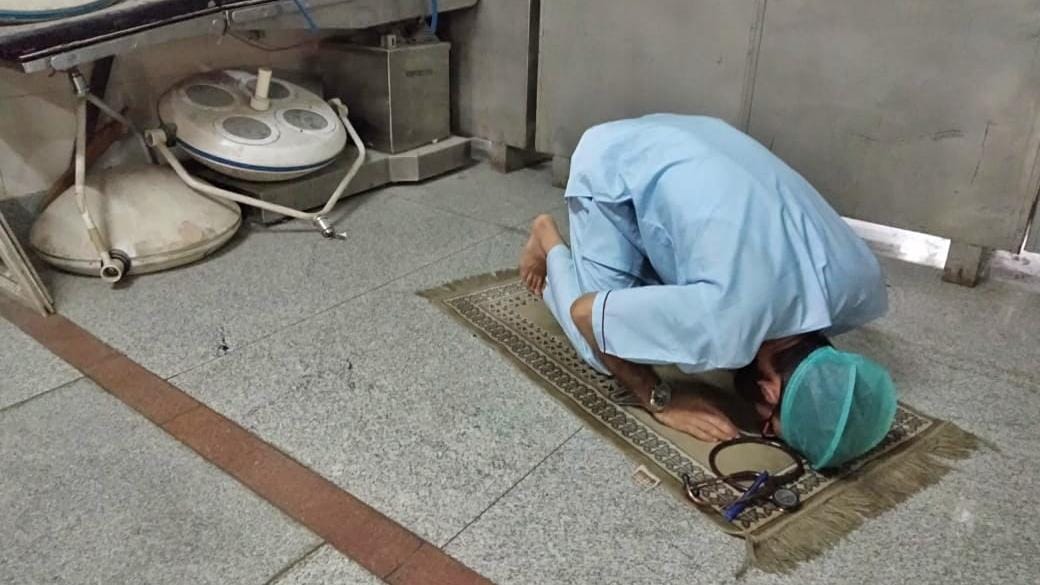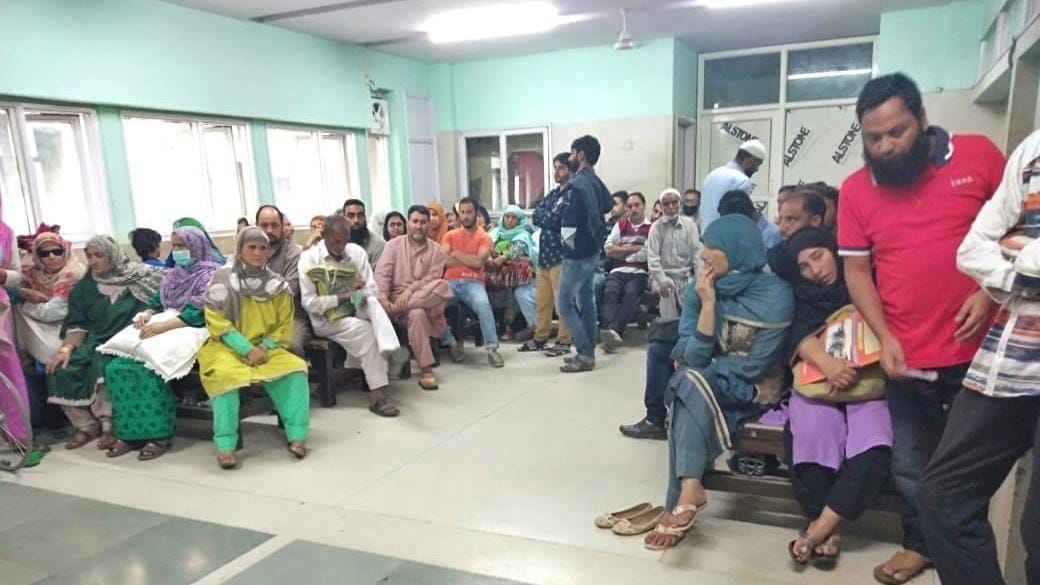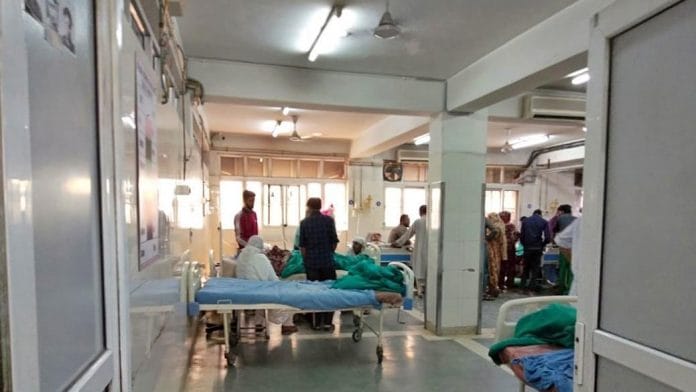Srinagar: The “mystery woman”, knocked off her two-wheeler in Srinagar some time ago, would probably not have made it if it weren’t for doctors at the premier Sher-i-Institute of Medical Sciences (SKIMS).
When she was brought to the hospital by passersby, doctors discovered she had a severe head wound. A decision was taken to operate on her immediately, but the communication lockdown in the city after the scrapping of Article 370 meant there was no way to establish her identity and contact her family for the fees.
Instead of losing crucial time, a senior neurosurgeon attending to her decided to purchase the consumables that would be required for the surgery.
The woman, who it turned out was on her way to make a call to her son in Japan when she met with the accident, was saved.
This is not an isolated case. Ever since 5 August, when curfew-like curbs were imposed in Kashmir (marginally eased since) to preclude violence over the Article 370 move that took away the special status granted to Jammu and Kashmir, doctors have been routinely, and voluntarily, paying from their own pockets to save patients’ lives.

“All head trauma cases come to us. We can’t let a person die because we cannot communicate with their families,” a senior resident doctor at SKIMS told ThePrint. “Some of us have set up a contingency fund by pooling in money.”
According to another doctor, the attendance at SKIMS has been over 90 per cent since 5 August, even when movement was heavily restricted in the initial aftermath of the scrapping of Article 370.
“Some of us have been caught in the middle of stone-pelting on our way to work. But we came to the hospital,” said the second doctor.

Similar stories can be heard at the Sri Maharaja Hari Singh (SMHS) hospital, another big government tertiary care centre located in Srinagar.
A doctor at the SMHS critical care department talked of instances where colleagues had made home visits to check on seriously ill patients who could not come to the hospital because of the restrictions.
“Many among us went beyond our call of duty to attend to patients,” said the doctor.
Also Read: Over three-fourths of J&K population wanted Article 370 to be scrapped, says Rajnath Singh
High stress levels
Doctors in Srinagar’s government hospitals say their job has left them with scars from the constant stress of working in a conflict-torn environment.
“I have handled the aftermath of the violence in 2016 (after the killing of Hizbul Mujahideen commander Burhan Wani) when our hospital was flooded with teenage pellet victims,” said a second SMHS doctor. “As doctors, we adapt ourselves to deal with such situations, but somewhere it affects our psyche.”
Many doctors said it would help if they were offered counselling.

“It is raw stress. I know many of my friends who take anti-anxiety drugs,” said a doctor.
Another doctor recalled a panic attack she suffered on the night internet and phone connectivity was snapped.
“I was on night duty when a colleague told me to arrange some food as there could be trouble the next day,” she said.
“I tried calling home but the line did not connect. I tried to check the news on the internet but in vain. I just did not know what was happening around me,” she added. “I ended up taking a pill to calm my nerves.”
Also Read: Mumbai eye surgeon operated on 200 Kashmir pellet victims in 2016, is ready to help again







The hospital can be given a consolidated temporary fund by the district administration, it shouldn’t be hard to do. As for counseling one would hope that the premier hospital would have some in their staff. I think the time has come to ease restrictions on mobiles and some forms of political activity, if i were to guess i would say october should see significant relaxation.